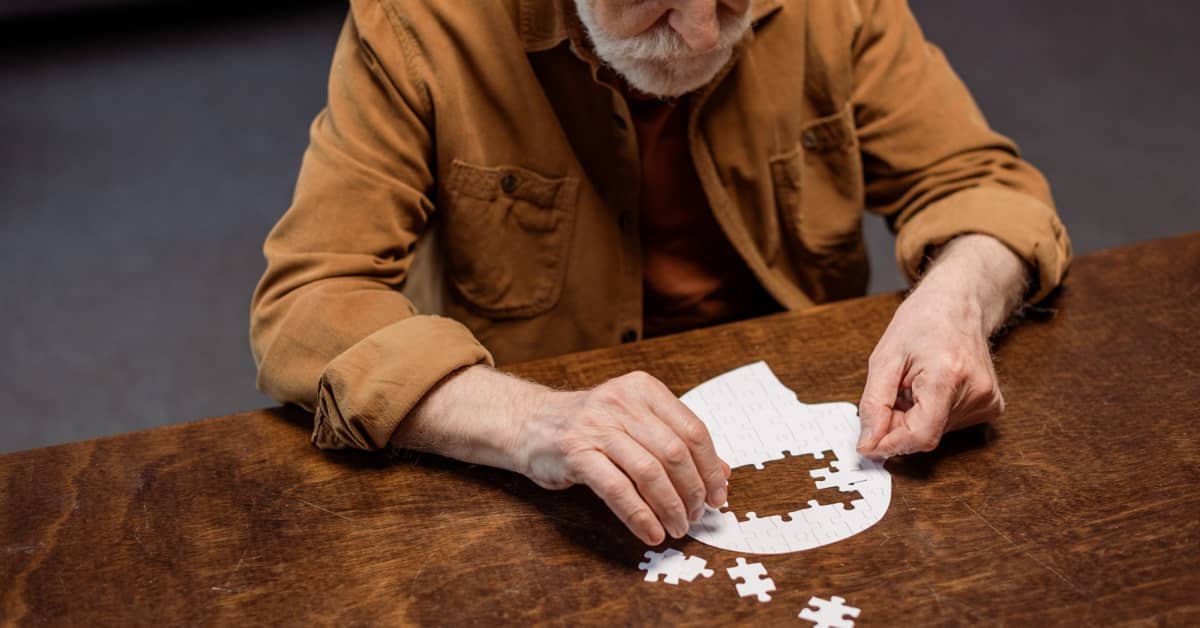
It's quite normal to feel anxious before "going under the knife." Surgery, especially major surgery, is daunting for anyone at any age.
But even if all goes well and you’re expected to make a full physical recovery, there's one problem that can present itself after surgery, particularly in older folks.
I’m talking about post-operative delirium. And if you fall victim, it can mean a longer hospital stay, slower recovery, and an increased risk of memory loss—even death.
But there’s good news. If you do this one, simple thing, then you can lower your risk of post-operative delirium by more than 60 percent.
Key Takeaways
- Brain games before surgery can lower the risk of post-operative delirium by up to 61%, especially for patients who engaged in over 10 hours of mental exercises.
- Post-operative delirium can lead to cognitive decline that exceeds even dementia-related memory loss, highlighting the importance of preventative measures.
- Simple brain exercises like crossword puzzles, reading, or app-based games can help prepare the brain for surgery, leading to fewer ICU admissions and better recovery outcomes.
What is Post-Operative Delirium
Post-operative delirium is characterized by disturbances in attention, awareness, and cognition as the patient recovers from surgery and beyond.
One Harvard Medical School doctor describes post-operative delirium in the journal Lancet as "a common, serious, costly, under-recognized and often fatal condition... affecting up to 50 percent of hospitalized seniors."1
Memory Decline Steeper Than Dementia
Even more alarming, while post-operative delirium was once considered a temporary condition, doctors now believe that in moderate to severe cases memory loss is long-term and can be worse than the memory loss that’s suffered with dementia.
"The declines in cognition may be both substantial and long-term and most notably exceed the rate of decline observed for patients with dementia," wrote another Harvard Medical School doctor in the Journal Alzheimer’s Disease.2
Researchers have tested drugs to prevent and treat post-operative delirium, but their studies have yet to prove successful.
The only treatment with any measurable results requires a skilled interdisciplinary team to provide a broad range of post-operative therapies ranging from stimulating activities, sleep enhancement strategies, exercise, and dehydration prevention, as well as avoiding certain medications and arranging for specialized family support.
This approach is called the Hospital Elder Life Program, or HELP, and is widely used for hospitalized patients over the age of 70.
This model has certainly improved patient outcomes, but researchers from Ohio State College of Medicine wanted to test a simpler approach that involved no staff and could be carried out easily by patients themselves at home before their hospital stay.
The Secret of Neurobics
Researchers enrolled 251 patients aged between 63 and 71 who were about to undergo major surgery with general anesthesia and expected a hospital stay of at least three days.
Half were given a tablet loaded with a brain games app that provided activities targeting memory, speed, attention-span, and problem-solving functions. Researchers asked the patients to use the app for an hour a day in the days leading up to the operation. The other half acted as controls.3
The brain games group, who on average completed about 4.5 hours of "neurobics" activities, enjoyed more than a 40 percent reduction in delirium compared to the control group. Those who played between five and ten hours had their risk cut in half, and the patients who performed exercises for more than ten hours saw a 61 percent reduction in risk.
Even more exciting, the brain gamers were also less likely to be admitted to an intensive care unit during their post-operative hospital stay.
Dr. Michelle Humeidan, who led the study, said, "Essentially, your brain can be prepared for surgery, just as the body can, by keeping your mind active and challenged." And for those who don't have a smartphone she adds some encouraging words, "Using the app was ideal for this study because we could easily track how long and how often patients were playing.
"But things like reading the newspaper, doing crossword puzzles or anything you enjoy to challenge your mind for an hour each day may improve your mental fitness and help prevent delirium as well."4
Our Takeaway
The whole study tends to confirm some advice we’ve often given in these pages: Use your brain or lose it. This is especially true if you're retired. Memory and cognition benefit from being put to work, and wither away if left unused. So whether you're taking up a new hobby such as playing a musical instrument to improve your memory, taking up ping pong for the brain boost or picking up a pickleball paddle, engage your brain in physical, mental, and social pursuits. It will make a big difference in your cognitive function whether you're having surgery or not.
Summary
Post-operative delirium is a serious condition affecting up to 50% of seniors following surgery, leading to prolonged hospital stays, cognitive decline, and even increased mortality risk. However, a new study from Ohio State College of Medicine found that engaging in brain games for just one hour daily before surgery can reduce the risk of delirium by more than 60%. Activities that challenge memory, attention, and problem-solving skills help “prepare the brain for surgery” by keeping it active, leading to faster, safer recoveries.
Frequently Asked Questions
What is post-operative delirium?
It’s a condition involving confusion, cognitive decline, and awareness issues following surgery, especially common among seniors.
How can brain games reduce the risk of delirium?
Brain games stimulate cognitive functions, enhancing memory, attention, and problem-solving, which helps prepare the brain for surgery and reduces the risk of delirium.
How effective is mental exercise in preventing delirium?
A study showed a 61% reduction in delirium risk for patients who engaged in brain games for over 10 hours before surgery.
What types of activities are beneficial for the brain before surgery?
Activities like brain games, crossword puzzles, reading, and problem-solving exercises are all beneficial.
Are there alternative methods to reduce post-operative delirium?
Programs like the Hospital Elder Life Program (HELP) also help prevent delirium through a range of therapies, but brain games provide a simpler, self-directed option.
- Inouye SK, Westendorp RG, Saczynski JS. Delirium in elderly people. Lancet. 2014 Mar 8;383(9920):911-22. doi: 10.1016/S0140-6736(13)60688-1. Epub 2013 Aug 28. PMID: 23992774; PMCID: PMC4120864
- Vasunilashorn SM, Fong TG, Albuquerque A, Marcantonio ER, Schmitt EM, Tommet D, Gou Y, Travison TG, Jones RN, Inouye SK. Delirium Severity Post-Surgery and its Relationship with Long-Term Cognitive Decline in a Cohort of Patients without Dementia. J Alzheimers Dis. 2018;61(1):347-358. doi: 10.3233/JAD-170288. PMID: 29171992; PMCID: PMC5714669
- Humeidan ML, Reyes JC, Mavarez-Martinez A, et al. Effect of Cognitive Prehabilitation on the Incidence of Postoperative Delirium Among Older Adults Undergoing Major Noncardiac Surgery: The Neurobics Randomized Clinical Trial. JAMA Surg. 2021;156(2):148–156. doi:10.1001/jamasurg.2020.4371
- Reyes, J.-P. C., Nguyen, C. M., Sheridan, E., Zuleta-Alarcon, A., Otey, A., Abdel-Rasoul, M., & Roeth, C. (n.d.). Practicing “neurobics” preps the brain for surgery and prevents postoperative delirium. Ohio State University and Wright State University.
